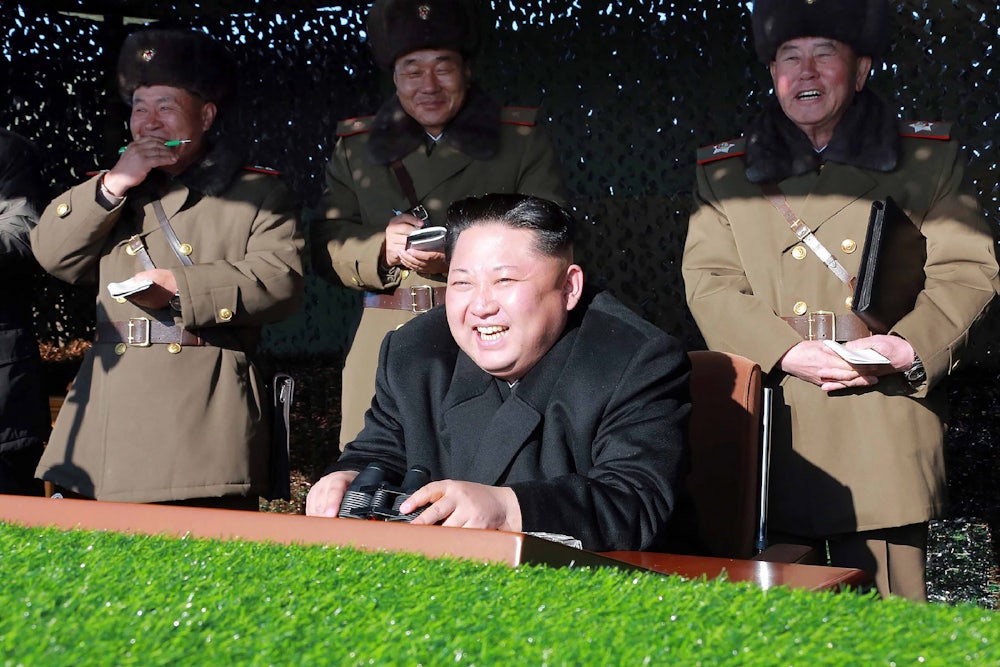Ever since the media lavished praise on the president for lobbing 59 Tomahawk missiles into Syria last week, the administration has apparently decided that war is the key to respectability, if not outright popularity. On Thursday, it dropped a $16 million “mother of all bombs”—reportedly the largest non-nuclear bomb in the United States’s arsenal—on an alleged ISIS hideout in Afghanistan’s Nangarhar province, which borders Pakistan. Thirty-six ISIS fighters were reportedly killed in the blast.
Oddly, neither Donald Trump nor Sean Spicer would take credit for the attack, perhaps because a casualty report was not available until Friday morning. But by Thursday evening the administration had already set its sights on its next target: North Korea. NBC News reported, “The U.S. is prepared to launch a preemptive strike with conventional weapons against North Korea should officials become convinced that North Korea is about to follow through with a nuclear weapons test.”
There was an enormous amount of confusion about this report, which received a lot of pushback. Intelligence officials were able to stem some of the panic that followed this story, which is far from conclusive. But other stories said the U.S. is exploring a “retaliatory” attack on North Korea, suggesting that the administration is mapping out aggressive responses to another nuclear test by North Korea.
This is, to put it mildly, a horrible idea. Remember that only two days ago, reflecting on his meeting with Chinese President Xi Jinping, Trump said this about the situation in North Korea: “After listening for 10 minutes, I realized it’s not so easy. I felt pretty strongly that they had a tremendous power [over] North Korea. ... But it’s not what you would think.” Trump, in other words, is still in the midst of figuring this out. It’s like he’s taking International Relations 101 while being president of the world’s superpower.
These reports about planning military action suggest two things. The first is that this is how Trump negotiates—and that he is not good at it. By threatening force, Trump is creating a situation in which every party involved (North Korea, South Korea, China, the United States) could easily get locked into an escalating series of actions, taking away the flexibility that’s required for negotiation. For instance, if Kim Jong-un doesn’t test a missile, it will look as though he’s doing so to avoid a strike from the United States. Defying world powers is essentially the foundation of his brutal regime, and Trump has given him even more bait to do so.
The second is that Trump has become enamored with using U.S. military power. The hope was that Trump would grow into the job. That hasn’t happened. Instead, he is leaning into issues that result in positive coverage on CNN. And nothing brings people from the media and both parties together like a missile strike.
Fox host: Dropping MOAB is "what freedom looks like, that's the red, white, and blue."
— Matthew Gertz (@MattGertz) April 14, 2017
Geraldo: It's one of my favorite things to watch. pic.twitter.com/E5X2lmTnSE
